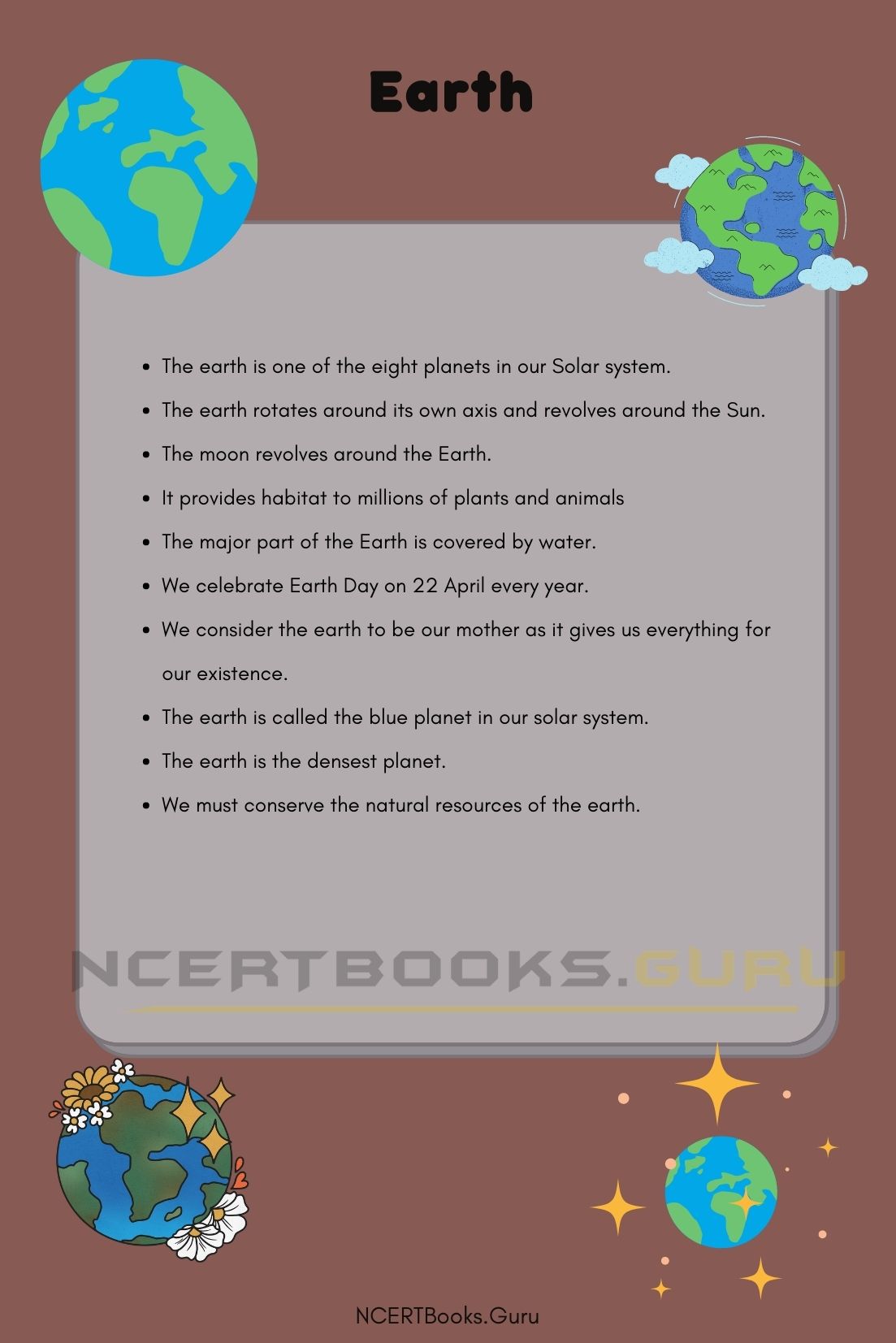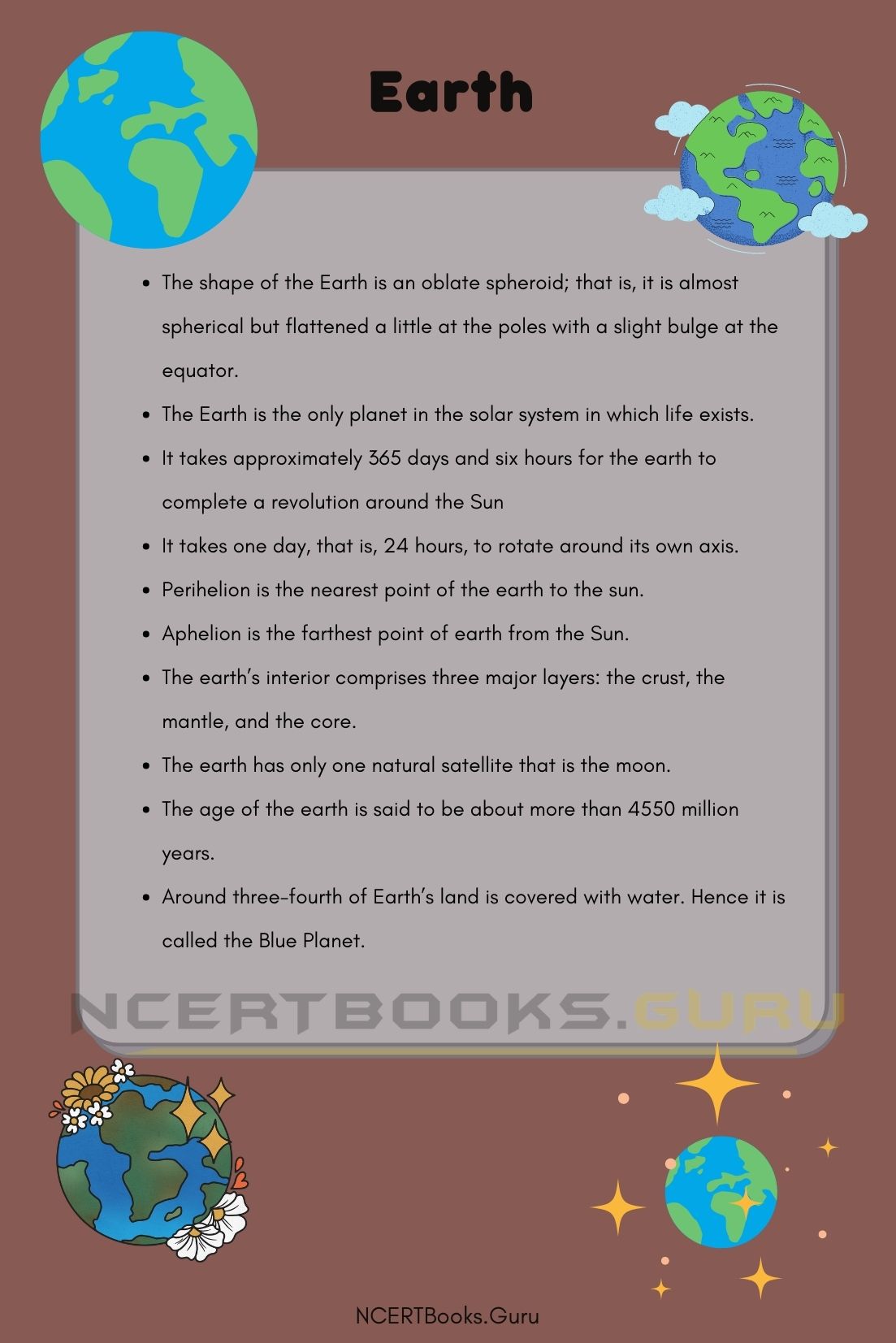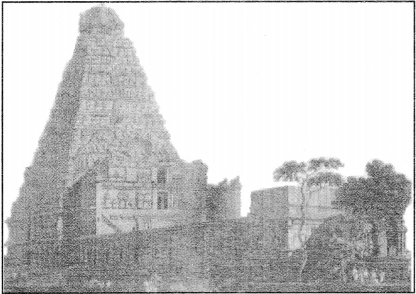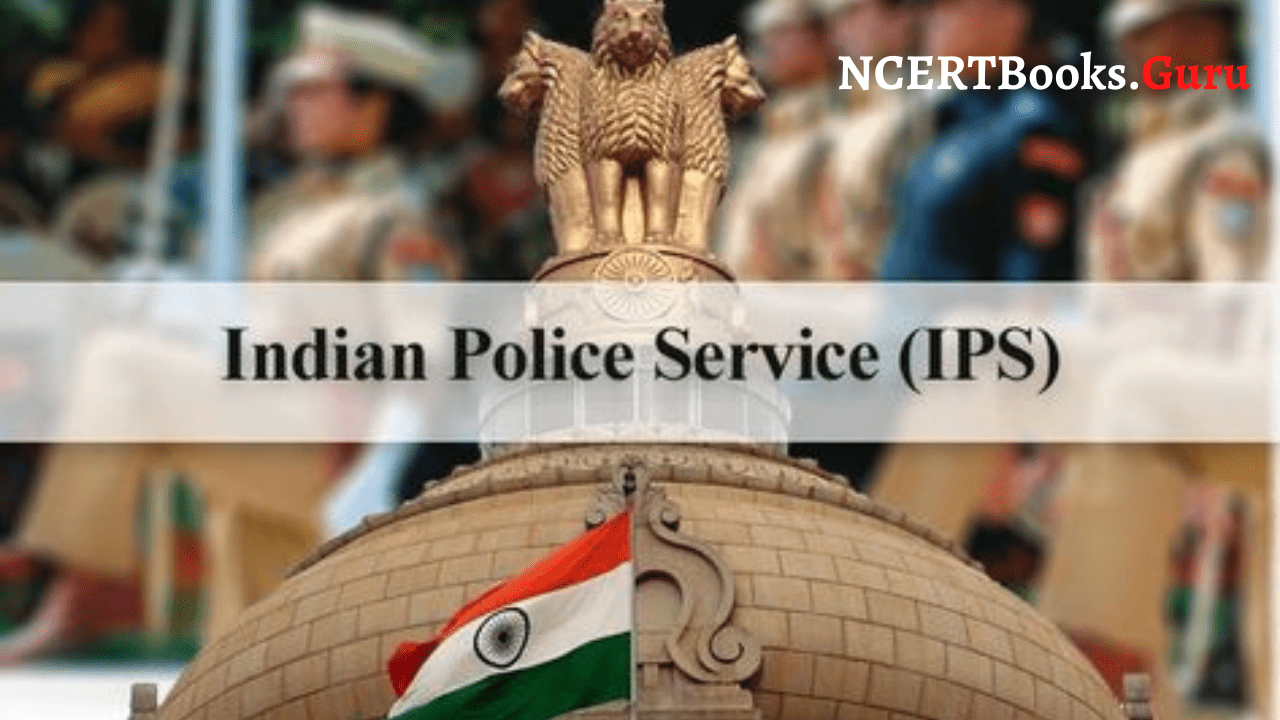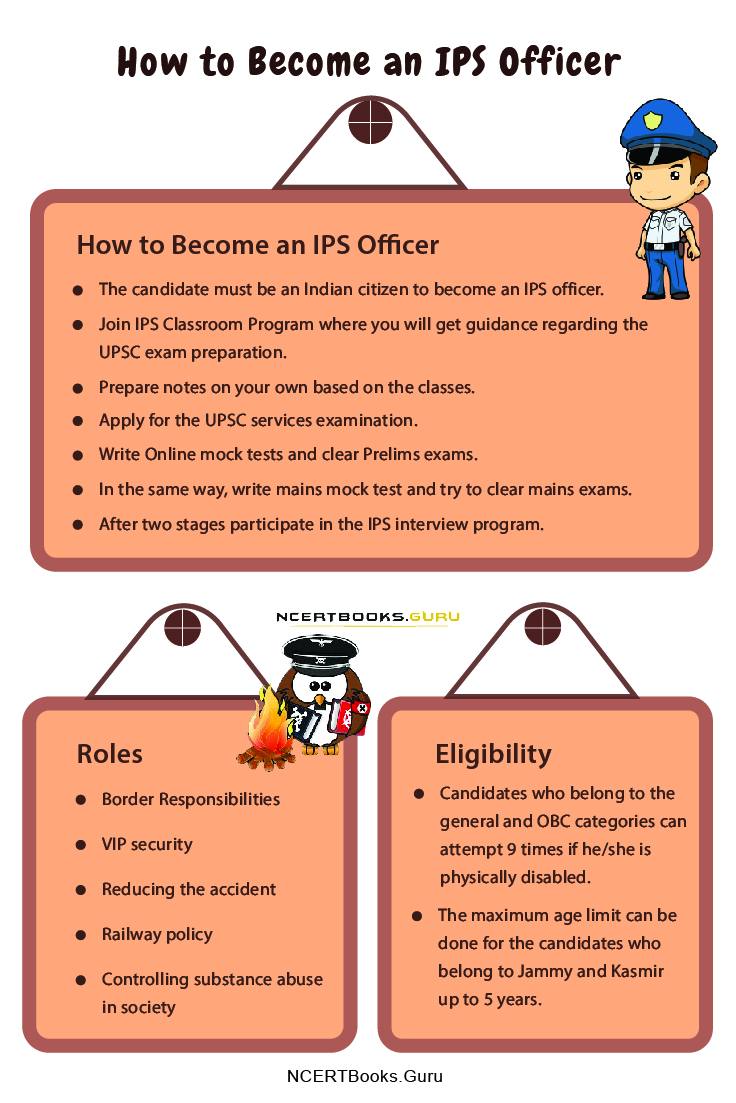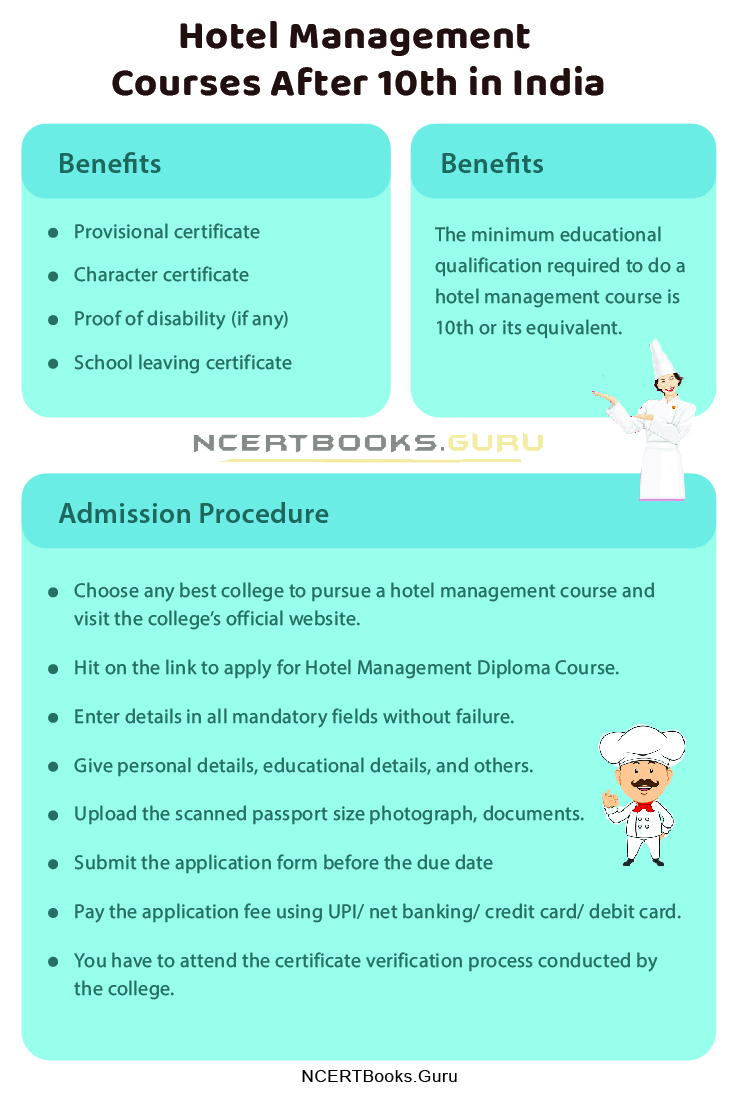Diploma in Lab Technician Course: A diploma lab technician course or diploma in medical laboratory technology is a course that provides the skills to the students to work in medical laboratories as technicians. If you are looking for the complete course details regarding diploma lab technician right from what is the course to the salary offered for lab technicians.
Want to know what is the Diploma in Lab Technician Course duration then follow the rest of the writings and also find more information about the lab technician course in the diploma. Just jump into the further modules:
- About Diploma in Lab Technician Course
- Should We Do A Lab Technician Diploma Course?
- Diploma in Lab Technician Course Eligibility
- DMLT Course Admission Process
- Skills Required to Become Medical Laboratory Technician
- Medical Laboratory Technician Diploma Course Syllabus
- Top Diploma in Lab Technician Colleges in India & Abroad
- Diploma in Lab Technician Course Fees
- Job Options for Students With a Diploma Degree in Lab Technician
- Top Recruiters for Students with a Diploma in Lab Technician Course
- Diploma in Lab Technician Course Salary
- FAQ’s on Diploma in Lab Technician Course in India
About Diploma in Lab Technician Course
Diploma in Medical Laboratory Technology (DMLT) is a branch of paramedical science that deals with the diagnosis and treatment of various diseases. It is an entry-level program designed to impart knowledge of testing diagnosing and identifying various diseases and problems.
In this 2-year program, students are given exposure to in-depth knowledge of pathology, blood bank, biochemistry, microbiology, etc. The students are trained to use different types of equipment present in the laboratory and technologies that are used in lab procedures.
Students can get practical hands-on experience with X-ray machines, CT scan machines, MRI machines, and many more. After completing this course students will be able to do all kinds of tests that are required to diagnose any particular disease. This program is mainly designed in order to fill the spaces of laboratory professionals.
There is no specific entrance examination for this course but some colleges do conduct exams for shortlisting the candidates. The candidate must have passed their 10 + 2 with a minimum of 50% marks in order to get admission to this course. After completing the course students can work in government and private hospitals, pathology labs, military services, medical content writing, colleges, universities, etc.
Should I Do Lab Technician Diploma Courses?
If you are interested in the medical field and want to be involved in the healthcare system, doing a diploma in lab technician course might be a very good option for you. Especially for people who find it difficult to get into the MBBS course, this course is the most amazing opportunity.
Candidates who are keenly interested in the investigation, diagnosis, and treatment of different health problems can go for this course. This course is in high demand in recent times and it helps you gain a very in-depth knowledge of the field of healthcare. You can work in both private and government sectors, and build your career in the field of paramedical science.
Must See
Medical laboratory technology is one of the fastest-growing fields across the globe in the healthcare area and a number of students are opting for this since they can find ample job opportunities and profiles that suit the skills that they have learned throughout the course.
Also with the rise of new diseases, there has been an overall development and an increase in demand for trained professionals in the healthcare environment. Hence, doing a diploma in lab technician course can be a boon for your career in the field of medical science.
Diploma in Lab Technician Course Eligibility
The basic eligibility criteria for a student who wants to take admission in diploma in lab technician courses is that they must have completed their class 12th with a recognized Board of Education with a minimum of 45 – 50% marks. If a student has cleared this criterion, they can apply to various institutes for admission in the DMLT course.
DMLT Course Admission Process
Following are the process for taking admission in a medical laboratory technology course:
- The candidate should pass the minimum eligibility criteria which are completing their 10+2 with a minimum of 50% aggregate Marks and PCM/B must be their subject
- Some colleges also offer DMLT courses after 10th grade
- Application forms can be submitted online or offline mode by visiting the college.
- Students are advised to check the website of the colleges from time to time to gain updates about the admission process.
- Some institutions conduct common entrance tests for admission into this program
- The admission process may vary from college to college
- The dates of admissions also vary across colleges. Usually, the entry starts in the month of May and ends in the month of July.
Skills Required to Become Medical Laboratory Technician
Following are some basic skills that are required to become a good technician in the medical field:
- Discipline is of utmost importance in the medical field more than in any other field.
- The candidate must be attentive to detail.
- The ability to perform tasks with speed accuracy and efficiency.
- The students must have the capability to conduct research.
- Basic computer skills are a must for a technician.
- The students must have an analytical judgment.
- The candidate must be patient and they must have the capacity to interpret technical scientific data.
Medical Laboratory Technician Diploma Course Syllabus
The diploma in medical laboratory technology is a 2-year course that consists of 4 semesters. This course is a mix of various subjects such as biochemistry, microbiology, pharmacology, immunology, and pathology. This course also includes various internships and projects which are designed in order to train students to meet the industry requirements.
The overall course structure is the same throughout the colleges but the details of the course structure may vary from college to college. Let’s look at the semester-wise diploma lab technician course subjects below:
| 1st Semester | 2nd Semester | 3rd Semester | 4th Semester |
| Human Anatomy | Human Physiology | Human Physiology 2 | Clinical Biochemistry |
| Basic Human Science | Basic Pathology | Metabolic and Technical Biochemistry | Clinical Microbiology |
| Fundamentals of MLT | Microbial Instrumentation | Technical Microbiology | Histopathological Techniques |
| Basics of Clinical Biochemistry | Fundamental Biochemistry | Clinical Hematology | Clinical Pathology |
| Professional Activities | Community Development | Community Development Activities 2 | |
| English Communications | Information and Communication Technology |
Top Diploma in Lab Technician Colleges in India & Abroad
The top list of colleges in India & abroad for joining diploma lab technician courses is shared here for your reference. Kindly look at them and choose any of your specific interested colleges in India and abroad to study the DMLT Course.
- University of Mumbai
- ITM Institute of Health Sciences
- Delhi Institute of Technology and Paramedical Sciences
- Rajiv Gandhi Paramedical Institute
- GIS University
- Brainware University
- Dinabandhu Andrews Institute of Technology and Management
- St. John’s Medical College
- Bangalore medical and Research Institute
- KP Paramedical Institute
- BJ Government Medical College
Best Diploma in Lab Technician Colleges in Abroad
- University of Wisconsin Parkside
- National University, USA
- University of Bradford
- Newcastle University
- Nottingham Trent University
- University of New Brunswick
- Griffith University
- The University of South Queensland
- University of Bradford
- Bangor University
- University of Kansas
- Fanshawe University
- RMIT University
Diploma in Lab Technician Course Fees
The average fee for a medical lab technician course diploma is somewhere between INR 20,000 to INR 4,00,000.
Job Options for Students With a Diploma Degree in Lab Technician
With the emergence of new diseases, job opportunities have increased rapidly in the field of medical science and particularly in the field of laboratory professionals and technicians. Employment in the lab technician field is expected to see an 18% raised by 2024.
It is estimated that the Indian healthcare system will create approximately 40,000,000 jobs by 2030 with a net growth of $40,000,000. Following are the top job profiles for students who have completed their diploma lab technician course:
- Healthcare administrator
- Coordinator
- Medical technician
- Laboratory manager
- Medical technologist
- Medical officer
- Laboratory testing manager
Top Recruiters for Students with a Diploma in Lab Technician Course
Following are the top recruiters for students after the medical lab technician course:
- Pathology labs
- Research labs
- Clinics
- Blood banks
- Government hospitals
- Private hospitals
- Clinics
- Universities
- Minor emergency centers
- Education department
- Medical writer and many more
Check other Medical Courses or Paramedical Courses to get placed in the best companies.
Diploma in Lab Technician Course Salary
The salary of a diploma holder in a medical lab technician course is somewhere between INR 2,00,000 to INR 4,00,000 per annum. The salary of an individual keeps on increasing as their experience in the job keeps on increasing.
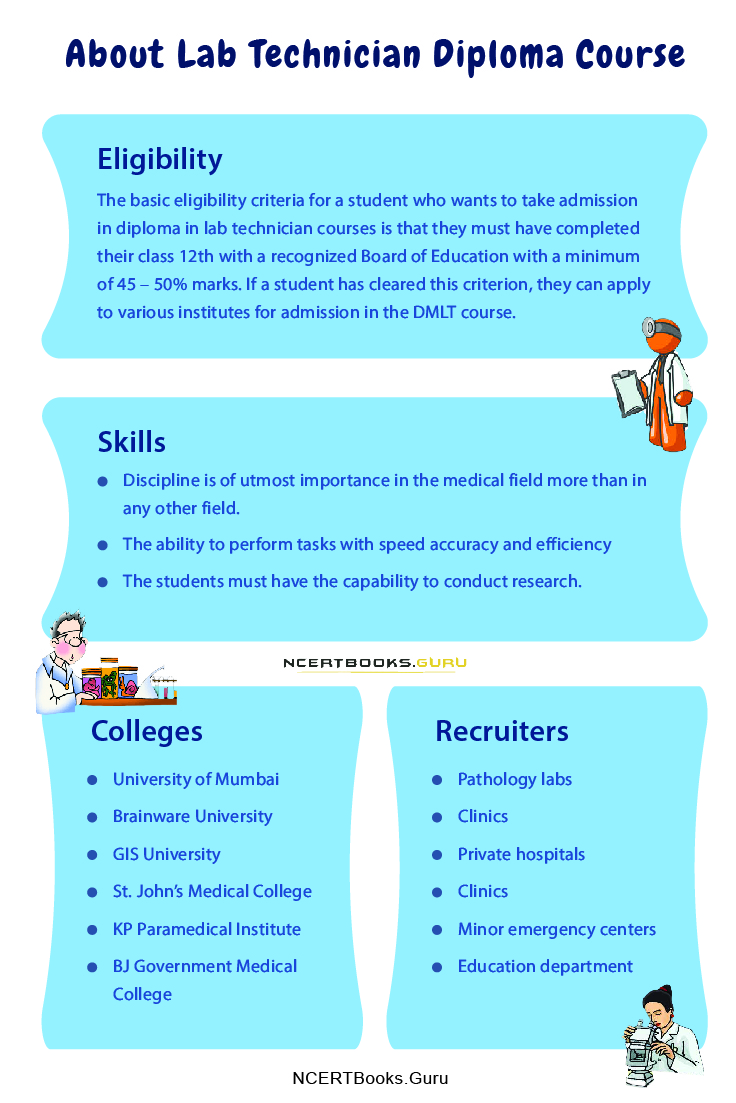
FAQ’s on Diploma in Lab Technician Course in India
1. Which is a better diploma in lab technician course or pharmacy?
Both the courses have their own benefits. One is the diagnosis of the disease and the latter is for curing the condition. Both of these courses play an important role in the healthcare sector. Hence it solely depends upon the student’s interest in which course they want to enroll in.
2. Can I do a diploma in medical lab technician course if I have PCM?
The diploma in medical lab technician course is related to the field of medicine. The student should have a very good knowledge of biology if they want to opt for this course. Generally, the eligibility criteria for these courses are that students must have passed their class 12th with physics, chemistry, and biology as their compulsory subjects. Though some colleges also allow students from PCM to opt for this course.
3. Can I open a lab after doing a diploma lab technician course?
You must have a complete degree to acquire a license if you want to open a diagnostic laboratory or you can also hire a pathologist for signature.
Conclusion
We hope that this article was able to provide you with all the information regarding a diploma in lab technician course. This article includes all the points regarding the course details, duration, eligibility criteria, admission process, fees, syllabus, top institutes, job profiles, salary, top recruiters in 2022.
This article is a complete guide for someone who wants to know all the details about a diploma in medical lab technician course. We hope that this information will help you make an informed decision for yourself to make your career on a good path.


